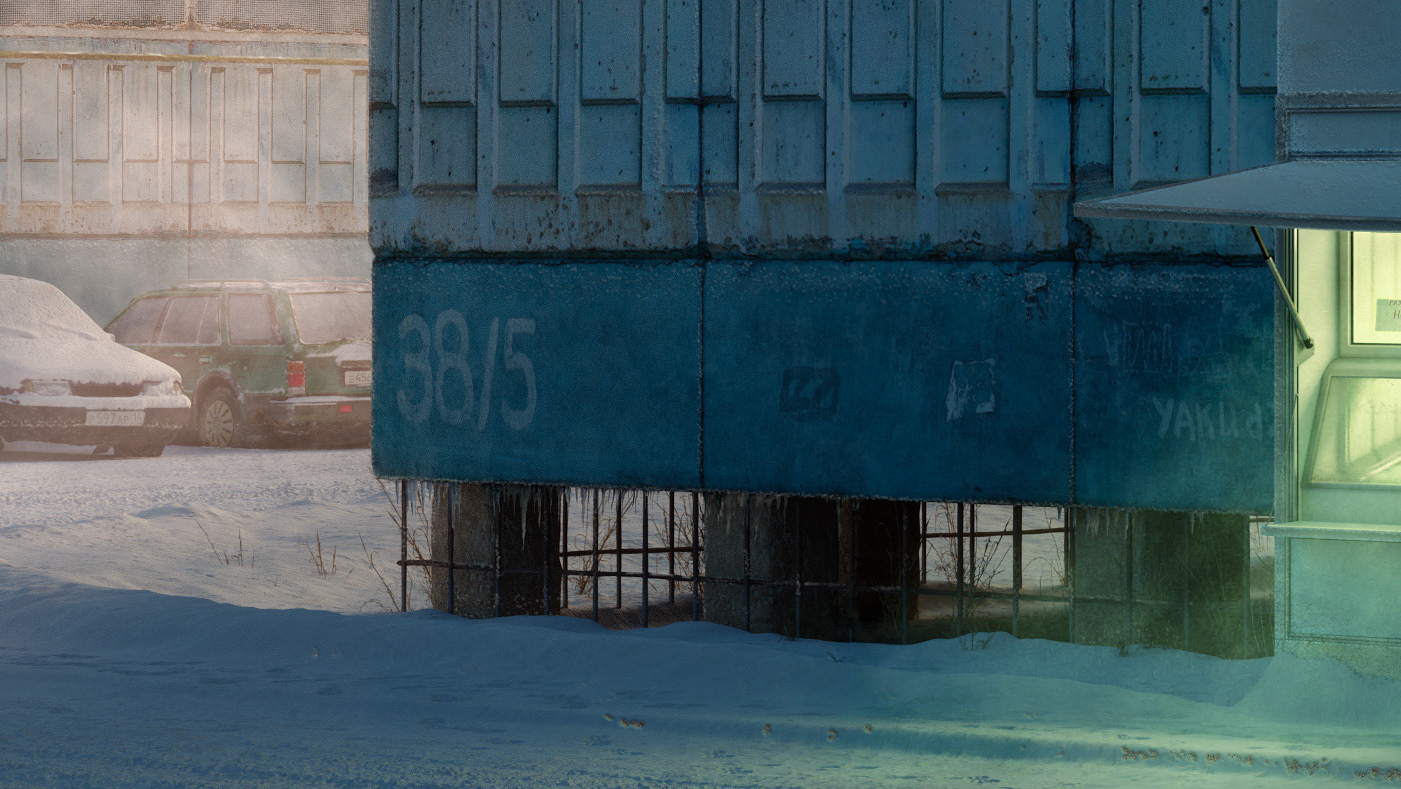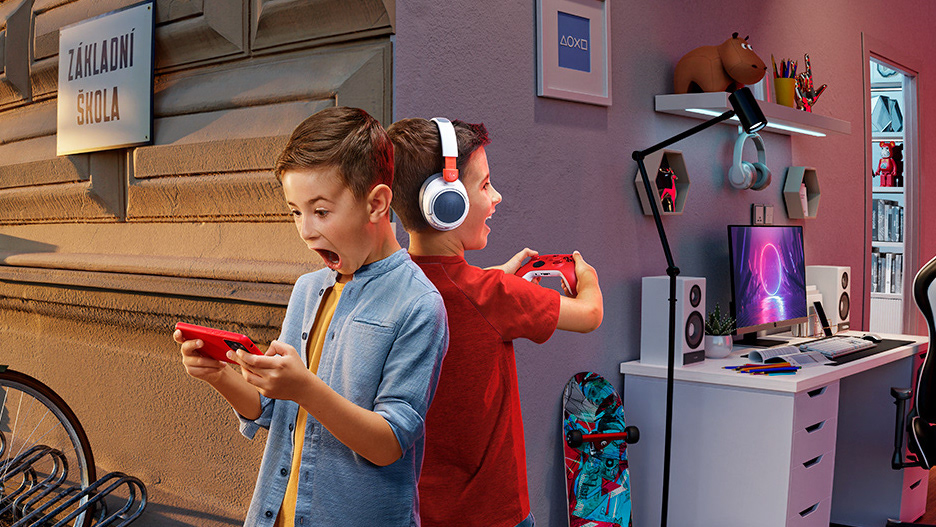2021:
A photographer with a greater inclination toward pathos might claim it is your duty to discover new places and faces through your pictures. A more introspective one, however, might argue that it is equally rewarding to uncover new qualities in familiar faces, to find hidden details in everyday corners that are thought to be well-known.
Central Europe, once a bustling, Babylonian melting pot of cultures and ethnicities, became a rigorously mono-ethnic aquarium through post-war socioeconomic experiments. Now, the aquarium is slowly filling up again: mostly with the Russian-speaking Eastern European community, without it ever really getting noticed, let alone applauded. Given the region’s historical legacy, this renewed coexistence can be an uneasy one. Newcomers are typically unaware of local nuances and idiosyncrasies, and their initial illusions of mutual similarity quickly give way to perceptions of mutual differences.
A photographer with a greater inclination toward pathos might claim it is your duty to discover new places and faces through your pictures. A more introspective one, however, might argue that it is equally rewarding to uncover new qualities in familiar faces, to find hidden details in everyday corners that are thought to be well-known.
Central Europe, once a bustling, Babylonian melting pot of cultures and ethnicities, became a rigorously mono-ethnic aquarium through post-war socioeconomic experiments. Now, the aquarium is slowly filling up again: mostly with the Russian-speaking Eastern European community, without it ever really getting noticed, let alone applauded. Given the region’s historical legacy, this renewed coexistence can be an uneasy one. Newcomers are typically unaware of local nuances and idiosyncrasies, and their initial illusions of mutual similarity quickly give way to perceptions of mutual differences.
Locals, on the other hand, respond with polite indifference bordering on suspicion: a cold distrust, like that of an ex-lover who just wants you to return the keys and swiftly close the chapter. Each of us seems to have a distinct idea of what these Eastern newcomers represent, though these preconceived stereotypes often contradict each other—from migrant workers to nouveau riche, from runaway dissidents to ex-KGB. People from very different countries, ethnicities, and sociopolitical backgrounds—who often would not find common ground with one another—are collectively labeled and dismissed as "Russkies."
I decided to put my own vague stereotypes to the test.
My method of choice here was deeply emblematic: I placed a classified ad in a Russian language expat group, inviting absolute strangers to my studio on a rainy Saturday. I would instantly shoot all comers, trying to quickly assess the unfamiliar face before me and judge their background and character. Only afterward would I open up and ask about their life story—what brought them here, and where they are headed.
"Capture those work-worn hands!" laughed a seamstress I had assumed to be a well-off, upper-class wife.
Is there any life lesson to be learned? Perhaps. Despite shedding some light on the face, most of our story always remains in the shadow...
I decided to put my own vague stereotypes to the test.
My method of choice here was deeply emblematic: I placed a classified ad in a Russian language expat group, inviting absolute strangers to my studio on a rainy Saturday. I would instantly shoot all comers, trying to quickly assess the unfamiliar face before me and judge their background and character. Only afterward would I open up and ask about their life story—what brought them here, and where they are headed.
"Capture those work-worn hands!" laughed a seamstress I had assumed to be a well-off, upper-class wife.
Is there any life lesson to be learned? Perhaps. Despite shedding some light on the face, most of our story always remains in the shadow...
Anton, 54, Moscow
"I’ve never encountered Russophobia in my life, but to be fair, it’s probably hard to come by when you work among Philosophy graduates. One regret I do have is not immersing myself in the language from the start. You never quite believe you would stay here forever, but then one day, you wake up and realize it’s been nine years already. I work in the film industry and organize various cultural activities, including an evening school for Russian-speaking youth to help them learn about local culture and history. From the start, my goal was to involve the Czech majority and avoid cultural isolation. The main issue my compatriots face here is the ongoing clash between post-Soviet collectivism and European individualism in daily life. For example, have you noticed how Russians can’t stand it when someone simply blows their nose?"
Grigorii, 22, Moscow
"I studied architecture here, and I also joined a theater ensemble, which has always been a passion of mine. Local architecture definitely inspires me, though I have to admit, it’s often the mess unfolding down here that capture attention more than what’s happening up there."
Anzhela, 48, Moscow
"I came here to join my daughter, who’s been here for nine years and earned her degree at the Technical University. It was tough for her at first, being the only girl and the only Russian in her class, but eventually, she earned her teachers’ respect, and they became proud of her.
Like anyone, I had some naive illusions about this place at first, but eventually, you come to accept that even here, people occasionally pee on the street from time to time. Back home, I was a psychologist, but for practical reasons, I had to start fresh here and took a job as a seamstress. Now, we even do some work for the National Theatre. Looking back, I’m grateful for this humbling experience—I had to dig deep, learn new things about myself, and that’s helped me feel at home here. When I meet friends from back home, they often say I smile more."
Kristina, 25, Siberia
"I came here right after high school—I made up my mind, and my parents eventually gave in. Most people here start out with these gap-year language courses, but they turned out to be so dull that I ended up just studying at home, cramming on my own and hoping I’d pass the university entrance exams. Economics and finance are highly appealing fields for many Russians, but honestly, my perspective has shifted since being here, and now I feel like I’d rather pursue something completely different.
If I could go back in time and give myself advice, I’d tell myself to try harder to fit in and talk more with the locals, however uncomfortable it feels at first. That’s something you can’t easily change once habits are set. Frankly, Russians abroad often have a different attitude than those back home—they’re usually well-off, overconfident, and sometimes act like they own the place. And it seems to get worse with each generation: trust me, we were better! (Laughs)"
Vitalii, 31, Dnipro
"I’ve only been here for three weeks. You’re probably wondering what brought me here, right? In my own country, basic concepts like accountability and justice are not exactly taken for granted. Most people back home are simply tired and just want to lead a decent life. I wanted to experience daily life in a place where these basic principles seem to work. Money wasn’t really the issue—I could earn more elsewhere. I’m here for a year, and then we’ll see what’s next for me. What I appreciate so far is how people here separate work and leisure time. I deliberately found a flat far from the office, so that when the workday is over, I have to stroll through the entire city and take it all in."
Alena, 19, Kharkiv
"I arrived in September. When I left my parents, I was still just a schoolgirl, and suddenly I had to navigate a new language, a new city, and new people. You grow up very quickly in situations like that. It gives you a fresh perspective on yourself and the life you’ve led so far. I would love to connect with some locals, but where do I even find them? It’s paradoxical, isn’t it? A friend suggested I go to a nightclub and start a conversation, but isn’t it supposed to happen the other way around?"
Maksim, 47, Saint Petersburg
"I’ve been living here since 1994, and I started from the bottom! For the past 20 years, I’ve worked for an international company that manufactures water turbines. I married a local woman, and our daughter is, of course, fully local by now. So, in a way, I came here to enrich the gene pool. After all, being a Polish Jew from Saint Petersburg—well, that’s as bad as it gets, right?"
"I’ve been living here since 1994, and I started from the bottom! For the past 20 years, I’ve worked for an international company that manufactures water turbines. I married a local woman, and our daughter is, of course, fully local by now. So, in a way, I came here to enrich the gene pool. After all, being a Polish Jew from Saint Petersburg—well, that’s as bad as it gets, right?"
Rangar
"Man, I feel like I’ve been here forever. I studied International Relations at the Metropolitan University, focusing mainly on conflict studies. Lately, I’ve been toying with the idea of getting my PhD, maybe somewhere else—perhaps in Northern Europe. I truly love it here, but I can sense something shifting in the air; there seem to be social changes happening. The things you read on the internet these days… people don’t even respect their own heroes anymore. It didn’t used to be this way."
"Man, I feel like I’ve been here forever. I studied International Relations at the Metropolitan University, focusing mainly on conflict studies. Lately, I’ve been toying with the idea of getting my PhD, maybe somewhere else—perhaps in Northern Europe. I truly love it here, but I can sense something shifting in the air; there seem to be social changes happening. The things you read on the internet these days… people don’t even respect their own heroes anymore. It didn’t used to be this way."
Aleksandra, 33, Ufa
Lisa, Tolyatti
(Looking at the previous picture) "That’s Aleks, right?! We used to share a flat a while back—it really is a small world! Back then, I was studying medicine, in my fifth year, but can you believe I got kicked out? Now I work in cosmetology. By the way, I brought a few things for a photoshoot I’m doing later today. Which top do you think would look best?"
(Looking at the previous picture) "That’s Aleks, right?! We used to share a flat a while back—it really is a small world! Back then, I was studying medicine, in my fifth year, but can you believe I got kicked out? Now I work in cosmetology. By the way, I brought a few things for a photoshoot I’m doing later today. Which top do you think would look best?"
Egor, 23, Sovetsky
"I come from a small town of about 30,000 people. When I was 13, my dad suggested I go here for a summer language course, and I just fell in love with the place. Admittedly, part of the appeal was the freedom—I was completely unsupervised for an entire month! From that point on, I knew I’d eventually move here after high school. My parents and I spent a long time weighing the pros and cons.
Back home, people think moving abroad is nearly impossible and prohibitively expensive, but in reality, the biggest challenge is adapting to a different mentality. Who knows where life will take me in, say, 10 years? I try to live in the present, and honestly, I wouldn’t change a thing!"









